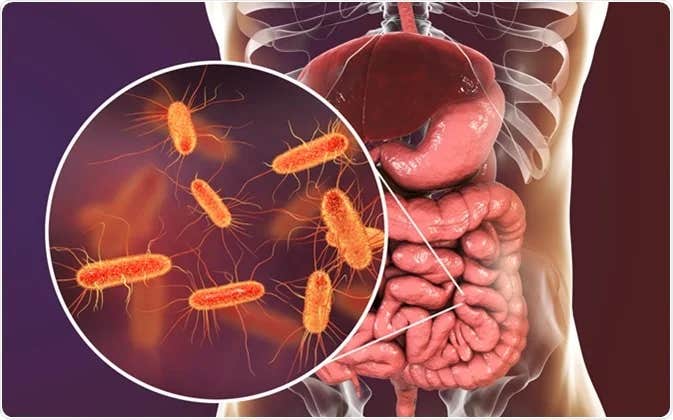Gut bacteria can boost the body’s immunity to cancer, study finds
Researchers discovered that a specific strain of gut bacteria, Ruminococcus gnavus, can enhance the efficacy of cancer immunotherapy.

Immunotherapy, a revolutionary approach that harnesses the body's immune system to combat cancer, has shown promising results in treating certain cancers, such as lung cancer and melanoma. However, only about 20% of cancer patients benefit from this treatment. Researchers are continuously exploring ways to improve its effectiveness for a broader range of cancers.
A recent study by scientists at Washington University School of Medicine in St. Louis, published in Science Immunology, has unveiled a potential breakthrough. The research, conducted in mice, discovered that a specific strain of gut bacteria, Ruminococcus gnavus, can enhance the efficacy of cancer immunotherapy. This finding suggests that manipulating the gut microbiome could unlock new potentials in cancer treatment.
The Microbiome and Immune System Connection
"The microbiome plays an important role in mobilizing the body's immune system to attack cancer cells," stated Marco Colonna, MD, the study's senior author and the Robert Rock Belliveau, MD, Professor of Pathology. "Our findings shine a light on one bacterial species in the intestine that helps an immunotherapy drug eliminate tumors in mice. Identifying such microbial partners is an important step in developing probiotics to help improve the effectiveness of immunotherapy drugs and benefit more cancer patients."
Cancer immunotherapy works by utilizing the body's immune cells to target and destroy tumors. Immune checkpoint inhibitors, a type of immunotherapy, release the natural brakes on immune T cells, allowing them to attack cancer cells. However, some tumors develop mechanisms to suppress these immune responses, reducing the treatment's effectiveness.
The Role of TREM2 in Immunotherapy
Colonna and first co-author Martina Molgora, PhD, previously collaborated with Robert D. Schreiber, PhD, and demonstrated that inhibiting TREM2, a protein produced by tumor-associated macrophages, significantly enhances the effectiveness of cancer immunotherapy.
Related Stories
TREM2 acts as a barrier, preventing T cells from attacking tumors. By blocking TREM2, the researchers improved the efficacy of immunotherapy drugs in mice with sarcoma tumors.
In a pivotal experiment, the researchers observed that mice lacking TREM2 responded better to checkpoint inhibitors even when housed with mice that had TREM2. This unexpected result led them to hypothesize that gut microbes might play a role in this enhanced response.
Investigating the Gut Microbiome
The researchers collaborated with Jeffrey I. Gordon, MD, and Blanda Di Luccia, PhD, to investigate the gut microbes in these mice. They discovered that mice responding well to immunotherapy had an increased presence of Ruminococcus gnavus in their intestines, while this microbe was absent in non-responding mice.
Ruminococcus gnavus has been previously identified in the gut microbiota of cancer patients who respond favorably to immunotherapy. In clinical trials, fecal transplants from responsive patients have helped some non-responding patients benefit from immunotherapy. This led the researchers to introduce R. gnavus to the mice and treat their tumors with a checkpoint inhibitor. Remarkably, the tumors shrank, demonstrating that the presence of R. gnavus could enhance the immunotherapy's effectiveness, even when TREM2 was present.
Implications for Cancer Treatment
Jeffrey I. Gordon, director of the Edison Family Center for Genome Sciences & Systems Biology, emphasized the significance of these findings. "Evidence is mounting that the microbiota boosts immunotherapy. Identifying relevant species, such as R. gnavus, could lead to a next-generation probiotic that could synergize with immunotherapy to improve cancer care."
The researchers aim to uncover the mechanisms by which R. gnavus aids in tumor rejection. Understanding this process could reveal new strategies to enhance cancer treatment. One possibility is that R. gnavus produces immune-activating metabolites during food digestion, which could be harnessed to boost immunotherapy. Additionally, microbes may leak from the gut and trigger an immune response directly in the tumor or activate gut T cells that then migrate to the tumor to attack it.
Marco Colonna and his team are investigating these potential mechanisms, hoping to pave the way for innovative treatments that could benefit a larger number of cancer patients. The integration of microbiome research into cancer therapy holds great promise, potentially transforming the landscape of cancer treatment and improving patient outcomes.
For more science news stories check out our New Discoveries section at The Brighter Side of News.
Note: Materials provided above by The Brighter Side of News. Content may be edited for style and length.
Like these kind of feel good stories? Get the Brighter Side of News' newsletter.
Joshua Shavit
Science & Technology Writer | AI and Robotics Reporter
Joshua Shavit is a Los Angeles-based science and technology writer with a passion for exploring the breakthroughs shaping the future. As a contributor to The Brighter Side of News, he focuses on positive and transformative advancements in AI, technology, physics, engineering, robotics and space science. Joshua is currently working towards a Bachelor of Science in Business Administration at the University of California, Berkeley. He combines his academic background with a talent for storytelling, making complex scientific discoveries engaging and accessible. His work highlights the innovators behind the ideas, bringing readers closer to the people driving progress.



